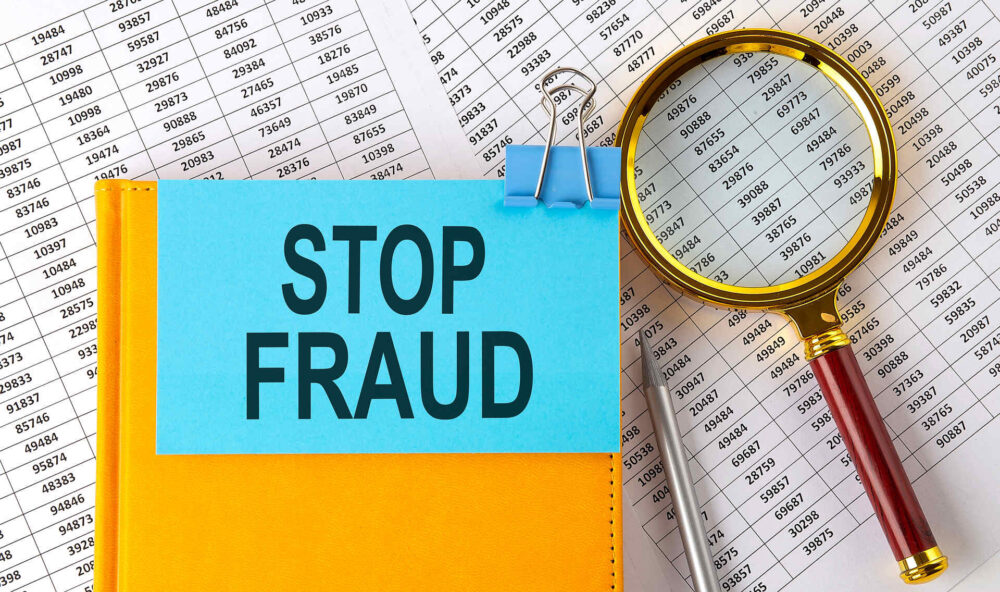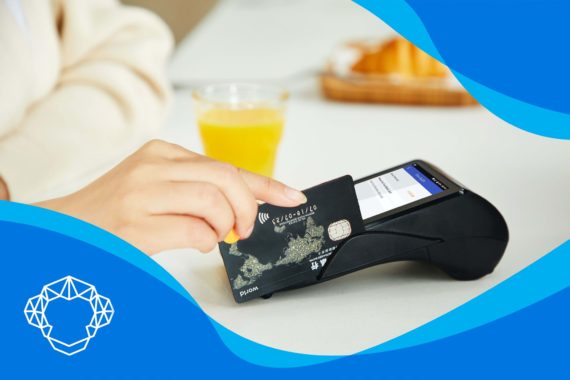As the vast world of eCommerce continues to grow, along with digital payment options, so does the chance for fraud. If you’ve ever encountered the term friendly fraud, you probably already know that it’s anything but friendly. Despite its name, it can really hurt merchants in a number of ways – through chargeback fees, lost sales, and damage to their brand image.
What Is Friendly Fraud?
Friendly frauds, also known as chargeback frauds, happen when a customer makes a legitimate purchase using their credit or debit card. Next, they dispute the charge with their bank, often claiming that they did not make the purchase or that the item was not received. Unlike traditional fraud, where someone intentionally uses another person’s card without permission, friendly fraud typically involves the actual cardholder.
Friendly fraud is a significant issue for merchants as it can lead to financial losses, chargeback penalties, and damage to their reputation. It can be challenging to prove and prevent, and that’s why it’s a persistent problem in eCommerce and other industries. It’s also important to point out that it’s not as uncommon as it may seem. In one survey, 23% of people who made a dispute over a charge admitted to using friendly fraud.
A 2020 study by FIS Global says that friendly fraud costs the credit card industry over $132 billion a year and makes up around 70% of all credit card fraud. That amount doesn’t include the other losses businesses take on, like the products or services that they lose and have to refund in the end.
Why Does It Happen – The Nature of Friendly Fraud Chargebacks
These fraud chargebacks can often arise from a variety of seemingly innocent reasons. Unlike other types of fraud, this type of scam involves the cardholder initiating a dispute. The reasons behind these disputes can vary, but they often stem from common human behaviors and misunderstandings rather than malicious intent.
For instance, some customers may simply forget about an online purchase they made, and they are now questioning themselves and no longer recognize the charge on their card. Misunderstandings about the terms of a sale, such as unclear return policies or confusing billing practices, can also lead customers to initiate a chargeback.
Here are some of the most common reasons why friendly fraud chargeback occurs:
- Customers may forget about a purchase or fail to recognize a charge on their credit card statement, which leads them to a dispute.
- Confusion over terms and conditions or return policies can result in customers disputing charges they initially agreed to.
- Family members or others with access to the cardholder’s information might make purchases without their knowledge.
- Purchases made on a whim can lead to buyer’s remorse, and it can also lead to disputes.

Major Stats on Chargeback Fraud Trends
Knowledge is power, and gaining insight into top trends of this type of fraud can ultimately help a business reduce risks. Let’s look at the latest statistics on chargeback fraud in the table below.
| Statistic | Details |
|---|---|
| Global Cost | In 2023, chargeback fraud cost merchants around $20 billion worldwide |
| Future Cost Estimate | By 2026, the cost of chargeback fraud is projected to reach $28.1 billion for merchants |
| Proportion of Friendly Fraud | Between 75-86% of chargebacks are suspected to be instances of friendly fraud |
| Increase in Fraud Reports | Merchants experienced a 19% rise in chargeback fraud from 2022 to 2023 |
| eCommerce Payment Fraud Trends | 59% of eCommerce businesses report a rise in online payment fraud |
How It Can Hurt a Business
Fraudulent chargebacks are becoming a bigger issue for eCommerce businesses and could become an issue in many other business areas as well. The consequences of these disputes are far-reaching and can strain a business’s financial health, reputation, and operational efficiency. Let’s discuss other potential negative impacts of this type of scam.
Financial Impact
One of the most immediate effects of friendly fraud is the financial hit businesses take when a customer disputes a charge. They lose the money from the purchase but also have to pay extra fees and administration costs that come with the refund process. These losses can be especially bad for small businesses, and they could put their total financial stability at risk.
Reputation Risks
Customers may not trust a business if they think it is slow to respond or unwilling to handle complaints in a good way. Online reviews and comments that aren’t positive can hurt the business’s reputation, turn away potential customers, and make current customers less likely to trust the company. This harm can cause less revenue, slower growth, and a drop in the lifetime value (LTV) of a customer.
Chargeback Fees
Credit card processing companies and issuing banks may charge additionally if you have a lot of chargebacks. Some of these penalties could be higher fees or even the account’s early termination. These kinds of events can mess up a business’s cash flow and force it to look for other, often more expensive, ways to handle payments.
Resource Drain
Addressing fraudulent chargeback claims requires significant time and resources. Businesses need to get proof, talk to the customer, and react to the request for a chargeback or refund. This method can take valuable resources away from other important business tasks, which can slow down growth and productivity.
Fraud Prevention Expenses
Businesses often have to spend money on various tools and technologies for credit card fraud prevention in order to fight friendly fraud. These steps are important, but they can be pricey because they need to be backed up by software, tech, and staff training in order to find and stop fraudulent transactions.
Typical Friendly Fraud Scenarios
It’s true that the reasons behind this type of fraud can vary depending on a number of factors. However, there are only two main categories of friendly fraud – chargebacks and refund abuse.
Chargeback Fraud
This type of fraud happens when a customer disputes a charge with their bank or credit card company and claims that the transaction was unauthorized or fraudulent. Even if the customer made the purchase and received the product or service as expected, they might still dispute the charge. When the bank or credit card company processes the dispute, it can result in the business losing the payment and facing additional charges. Chargeback fraud can be particularly challenging to manage, as it often leaves merchants with little recourse to recover the lost revenue.
Refund Abuse
Customers who ask for refunds on goods or services they have gotten but keep the goods or continue to use the services are abusing the refund system. It can be hard for businesses to tell if a customer has really stopped using a product or service, which makes this type of theft even harder to spot. Abuse of refunds can cost a business money and hurt its image, especially if a customer posts about the bad experience online.

How to Prevent It From Happening
If we talk about fraud prevention, it’s clear a merchant should be strategic and careful. Disputes and chargebacks can be bad for a business, but if merchants deal with this issue properly, they can avoid these problems. There are many effective strategies that a business can use to minimize the risks.
Maintain Strong Communication With Buyers
It’s important to have good customer service and communicate clearly and openly with buyers. Your small business eCommerce website and its checkout should have a clearly outlined policy. You should make clear how cancellations, refunds, and chargebacks are handled. Giving accurate product descriptions and pictures can also help set realistic standards and lower the chance of misunderstandings.
Use Clear Billing Descriptions
Businesses should make sure that the payment information on their credit card statements is clear and easy to understand. This makes it easier for customers to understand the charges on their bills and avoids confusion that could lead to disputes over transactions that were not approved.
Implement Advanced Authentication Features
To verify customer identity and prevent unauthorized transactions, the company providing merchant services and credit card processing can incorporate multi-factor authentication and verification codes. These features make transactions safer by making sure they are approved by the real cardholder.
Send Order Confirmations
Once an online shopping transaction is completed, merchants should promptly send an order confirmation email to the customer. This email should contain essential details, such as the date, time, and amount of purchase. These order confirmations can help customers recall their transactions and provide an opportunity to address irregularities.
Use Fraud Detection and Prevention Tools
Investing in good credit card processing services means including advanced fraud detection tools that use sophisticated algorithms and machine learning to identify suspicious transactions. Features such as fraud scoring, IP address geolocation, and device fingerprinting help in detecting and preventing potentially fraudulent activity before it results in a chargeback.

How to Respond if It Happens
If it happens that your business has encountered a friendly fraud, it’s essential to address the situation effectively and minimize the financial impact. If merchants respond swiftly, they can more easily find the reasons behind disputes and chargebacks and implement strategies to prevent similar issues in the future. Here are the steps merchants should take:
- You should regularly review transaction records and customer communication to determine the validity of the chargeback or refund request.
- Quickly supply all relevant documentation to support the transaction, including product details, shipping records, and customer communication.
- Reach out to the customer to resolve the issue, offer additional information or evidence, or propose a refund or exchange if necessary.
- If there is sufficient evidence available, dispute the chargeback with the issuing bank or credit card company using chargeback representment.
In the end, it’s extremely important to enhance fraud prevention measures by implementing detection tools, improving customer service, and providing clear billing descriptions to reduce future incidents.

Protect Your Business With Our Merchant Services
In essence, to effectively handle friendly fraud, you need to be proactive and move quickly. Businesses can protect their image and avoid losing money by carefully investigating disputes, providing clear evidence, keeping lines of communication open with customers, and using chargeback representation.
Investing in strong prevention measures will also help lower the chances of future incidents, which will lead to smoother transactions and better relationships with customers. If you want to improve the way you handle chargebacks and prevent fraud, Merchant Chimp is the right credit card processing company for you. We have different services to suit your needs, including setting up your merchant account, processing, and a discount program.







